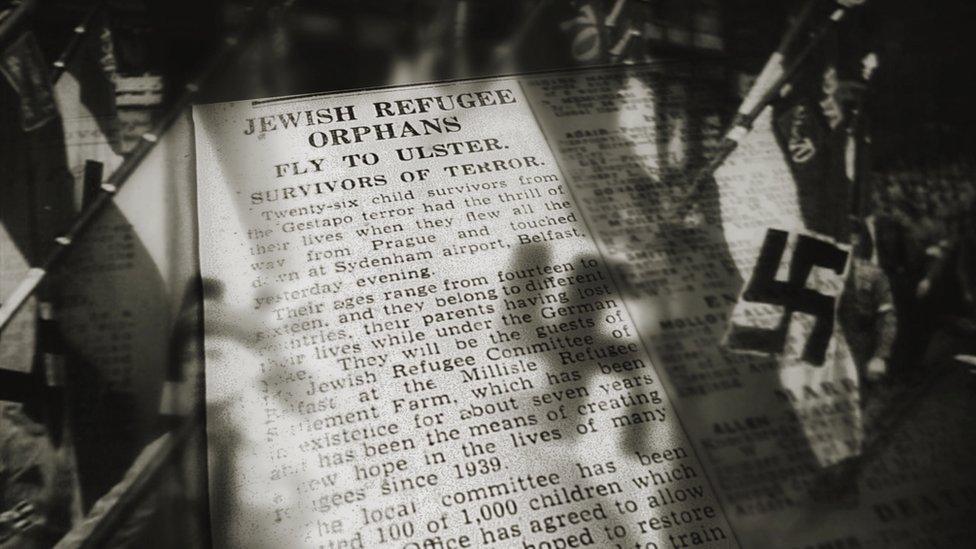How Holocaust survivors took shelter on a Northern Ireland farm
- Published
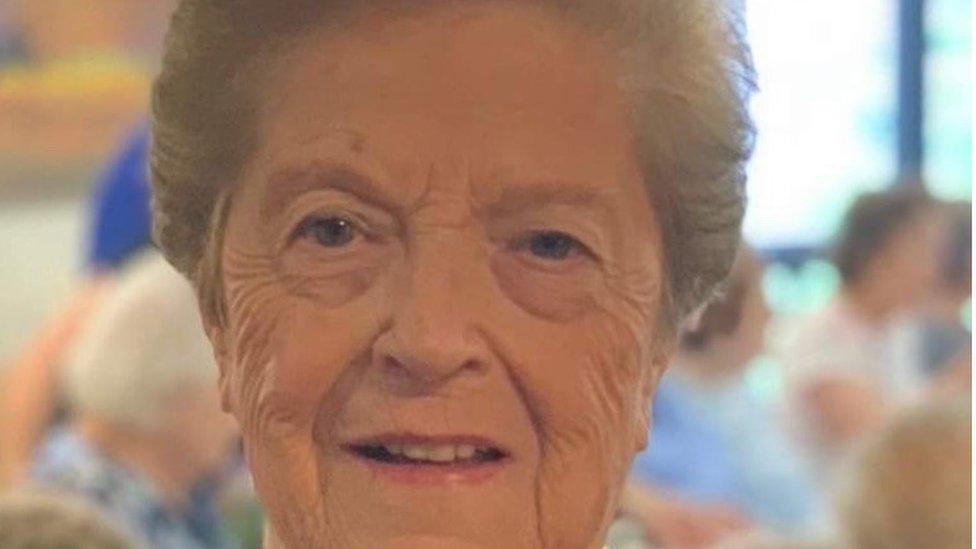
Rachel Levy came to Millisle in 1946
For Holocaust survivor Rachel Levy, living on a farm in Millisle, County Down, after World War Two is simple to describe.
"It was freedom."
From 1939 to 1948, the farm in the Ards Peninsula village welcomed Jewish children fleeing Nazi persecution.
For Rachel, who reflected on her time there as part of Holocaust Memorial Day, it was a "great relief" after the horrors she had witnessed at two of the most infamous Nazi camps - Auschwitz and Bergen-Belsen.
"It was lovely. It was green and beautiful," she said.
"We ran towards the sea. We actually tried to go in the water which was icy."
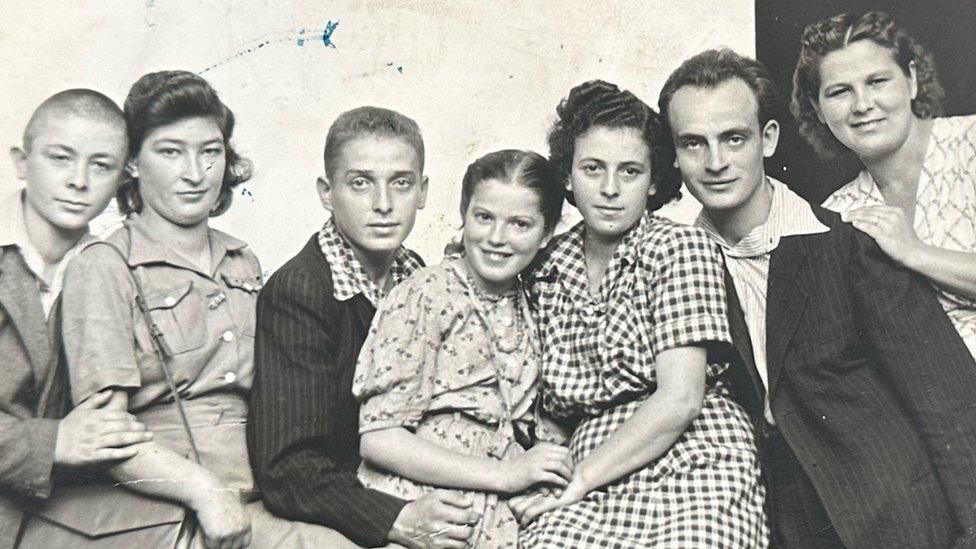
Rachel (centre) with other children at the farm
Rachel was in a group of Holocaust survivors flown to Belfast from Prague in February 1946.
Before the outbreak of war, she lived a normal life in a Czechoslovakian village, but things changed after Germany invaded the country.
Her father was taken by the Nazis in 1942 and in the spring of 1944 the rest of the family followed - despite the efforts of neighbours, who tried to protect them.
"They hid us," Rachel said. "But they were threatened that they would be killed if they helped Jews so they gave us up.
"They couldn't help that. I never blamed them because they were good people."
Rachel's mother and younger siblings were murdered in gas chambers but she and her older brother were used as slave labour at Auschwitz.
She was eventually marched to Bergen-Belsen.
After the camp was liberated by the British army in April 1945, she was reunited with her brother in Prague and they made the journey to Belfast together.
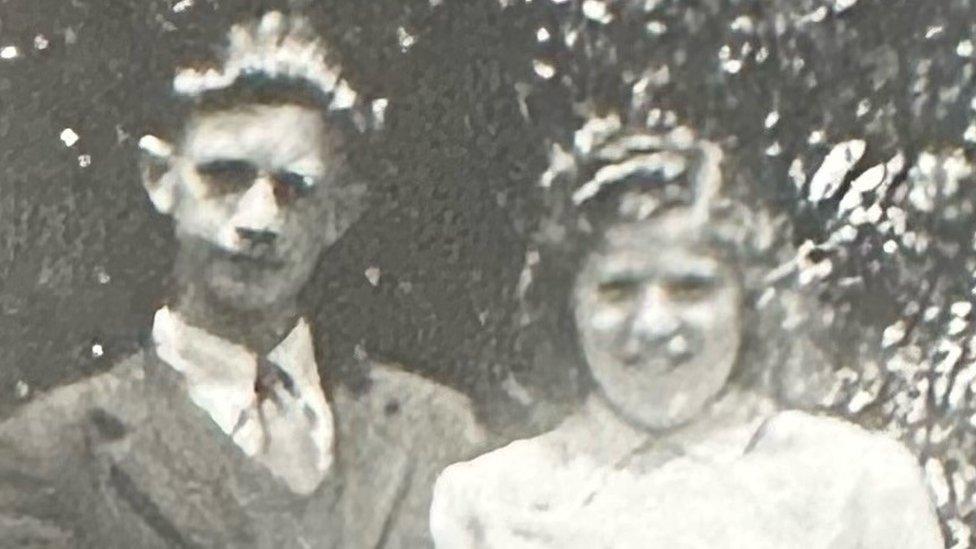
Rachel said that arriving at the farm was 'a great relief'
'We looked human'
A day at the farm was "very beautifully organised", Rachel said. There was entertainment, good food, English lessons and children were taken to the local hospital for health checks.
"It was absolute heaven. We were taken out to buy new clothes and we looked human," she said.
"We were looked after so well. We could run around, we could do things, we sang, we had lessons, we could go to the cinema.
"Behind all of us there was always a problem, and that was what we'd gone through, but we didn't speak of that.
"We didn't talk about the camps but we talked about the lovely place we were in and how we enjoyed it."
'Wounded animals'
Peter Kammerling's father Walter, who passed away in 2021, also stayed at the farm during the war.
Before he passed away, his father shared similar memories.
"Although they lived together, these kids didn't really know anything about each other," Peter said.
"Because they'd all left their families and didn't know what was going on, dad described them as being like wounded animals licking their wounds."
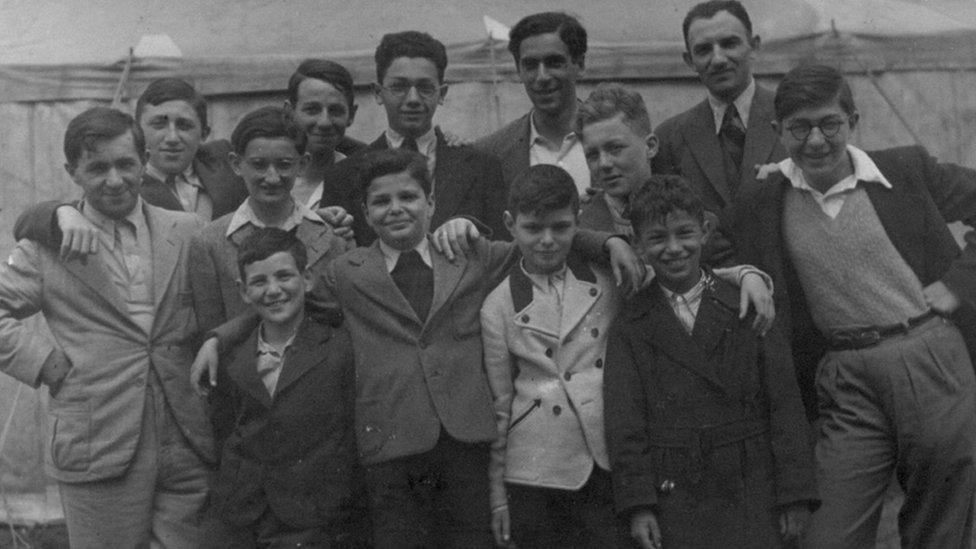
Walter Kammerling (back row, middle) at the farm
Water left Vienna, Austria, on a Kindertransport train, arriving at the farm in March 1939, aged 15.
"Dad remembers saying bye to his father [in Vienna]. He says it was the only time he saw his father cry," Peter said.
At the beginning, there was a lot of work to be done to make the farm habitable, Peter said.
"I think dad really enjoyed the hard physical work, athough he did say as a result of the farming work he did in Millisle, he refused to do any more gardening for the rest of his life."
At the local primary school, Jewish children were paired up with a local child to help them learn English and about life in Northern Ireland.
To this day, the school has a roll book with the names of children who attended during the war and a permanent Holocaust Memorial Garden.
Peter said his father "embraced and appreciated" what Millisle, Northern Ireland and the Jewish community did for him.
"I think it's important, the role that Millisle took during that time. It really helped my dad and must have helped quite a lot of other children to get through that trauma," he said.
In 1942, Walter moved to London where he met his wife, Herta, a Holocaust survivor from Vienna, who had come to England on a Kindertransport train.
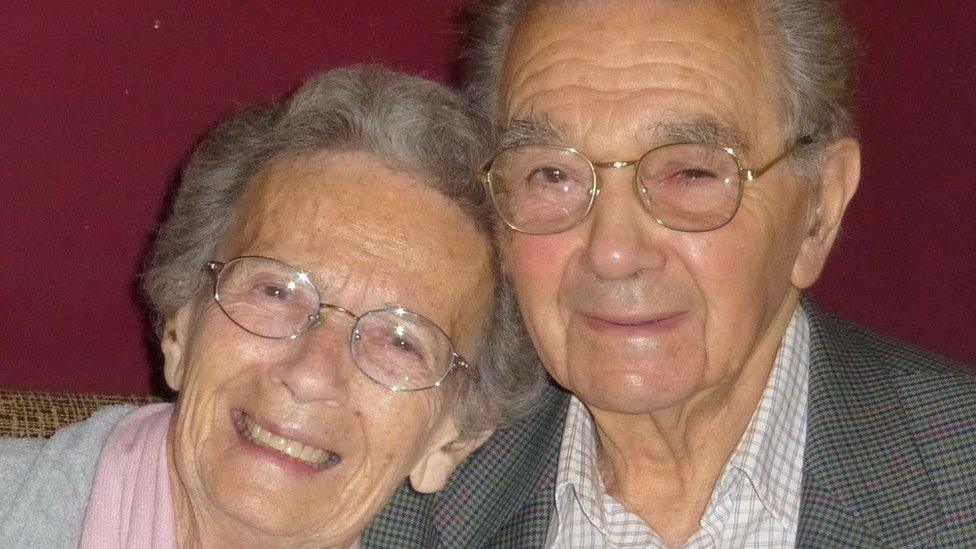
Walter met his wife Herta in London after the war
North Down assembly member Andrew Muir of the Alliance Party said the farm made him "immensely proud of Northern Ireland" and the role it played in offering shelter to refugees.
"People had experienced horrific circumstances and then were settled in Millisle," he said.
"The accommodation and the warm welcome that was provided is something that is often talked about.
"Out of the horrors of the Holocaust, I think there is a positive story to be told here but also lessons to be learned in terms of the need to provide that welcome to people fleeing conflict."
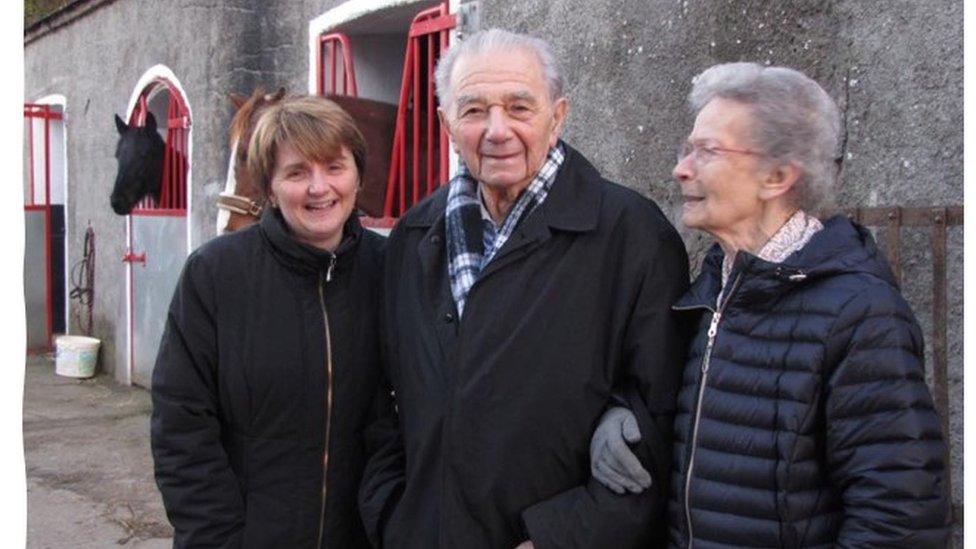
Shirley Lennon with Walter and Herta at the farm in 2017
Holocaust Memorial Day Trust Northern Ireland support worker Shirley Lennon said those who came to the farm "remember it as a time when they felt welcomed at at a difficult time".
She emphasised that the farm played a part in saving lives.
"People like Peter Kammerling wouldn't be here if Walter hadn't been taken to the farm," she said.
"So many lives were lost.
"It's a lesson for us that when people are brave enough to take action, it can make a real difference."
Related topics
- Published27 January 2018
